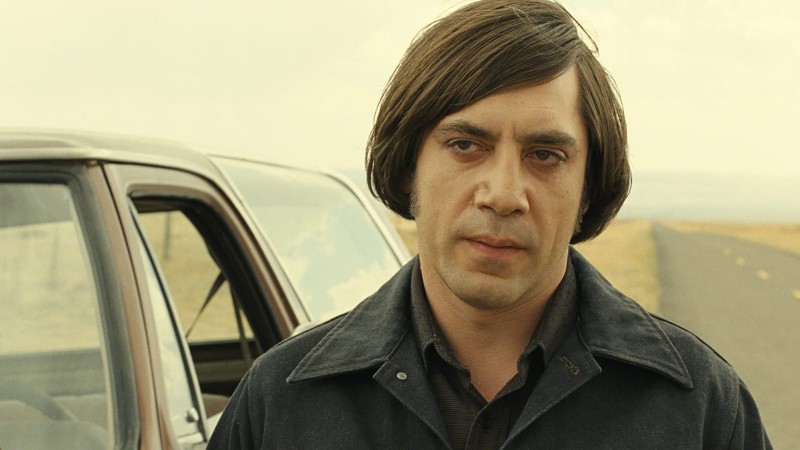Mildred Pierce: A Woman’s Work

Dark surf and full-throated music wash over the credits of Mildred Pierce, building to a knockout opening with a volley of gunshots in a beach house and a man in black tie keeling over in flickering firelight. Almost two hours later, however, the movie closes not with the swell and crash of waves but with the toiling sponges of scrubwomen on their knees, cleaning the floors of the Hall of Justice at daybreak. These mute women have the last word, bringing to the surface the film’s undercurrent of tough-minded sympathy for unseen, undignified, and unrewarded female labor, and pointing to its unusual blend of realism and high style. Beneath the sheen of glamour and the throb of melodrama, Mildred Pierce (1945) is an acute, unsparing study of relationships poisoned by class and money. The plot reveals a cruel sting in the tail of the most essential American promise—that hard work, sacrifice, and self-improvement will find their ultimate reward in the next generation’s success. But these caustic insights are embedded in a movie as satisfying as the comfort food Mildred serves in her neon-lit upscale diners: the dialogue crisp and salted with wit, the decadently rich emotion cut by just enough acerbic tartness.
We first hear Mildred’s name on the lips of a dying man, and first see her walking alone on a deserted pier that extends into the enormous blackness of the ocean. Her silhouette—the huge, boxy shoulders of a fur coat and the steep ankle-strap heels lengthening slim legs—announces Joan Crawford even before the first tearstained close-up. The role of Mildred won Crawford her only Oscar and distilled her essence as a star: a fiercely hardworking perfectionist driven by a dogged, unappeasable longing for approval. She could play tough, she could play capable and hardheaded, but in her eyes burned a volatile blend of fiendish energy and quivering need. In Mildred Pierce, this molten core is tamped down by steely restraint; she was never better, and—at something like forty, depending on which birthdate you believe—never more beautiful.
Director Michael Curtiz often clashed with Crawford during shooting, complaining that she insisted on glamorizing the woman whose daughter calls her a “common frump.” But the veneer of gentility and obsessive care for her looks that clung to the actress—born into miserable poverty as Lucille LeSueur—perfectly suits Mildred Pierce, who sells cakes and pies out of her kitchen to pay for her daughters’ piano and ballet lessons, even when her husband is out of work. True, Crawford is never quite convincing as an ordinary, downtrodden housewife, but could a woman who builds a chain restaurant empire, makes a fortune, and marries the scion of a fallen old-money clan, all out of desperation to please a snobbish daughter, ever be described as ordinary? This is a woman who, forced to take a job waiting tables to support her children, throws herself into the work like an Olympian in training, becoming an almost frighteningly competent waitress.
Mildred recounts her history in a police station, where she is being questioned after the murder of her husband, and the accompanying flashbacks begin with her staking a claim to averageness, recalling her street in the stereotypical Southern California suburb of Glendale, “where all the houses looked alike,” her feeling of having been born in the kitchen and lived her whole life there. The trappings of motherhood and pie baking may not seem like the stuff of film noir, but Mildred’s obsession with her older daughter is as perverse and destructive as any man’s enslavement to a femme fatale. Veda (Ann Blyth, only around sixteen when the film was made) is a femme fatale in bobby socks: manipulative, deceitful, selfish, and cold-blooded. Blyth’s primly immaculate, doll-like prettiness, with a head too big for her tiny body, perfectly suits this bad seed who is wily as a grown-up and amoral as a baby.
In this fatally unhealthy relationship, it is the mother who fears the daughter’s judgment: the scene where Veda accuses Mildred of “degrading” the family by waitressing is so painful it’s hard to watch. Later, in a fit of ecstatic contempt, the girl insults her mother’s family and breeding—as though they weren’t also her own—and triumphantly tells the self-made success that money and a new hairdo will never give her class. But Veda also knows when to drop this crushing disdain and play what can be described only as love scenes—flinging herself into Mildred’s arms with kisses and tears and promises to change. The only change comes when her smug entitlement curdles into sociopathy; she detests the “smell of grease” on the money from her mother’s restaurants but is delighted with the $10,000 she extorts from a wealthy family with a fake pregnancy. In the end, she blames her mother for all her crimes—“It’s your fault I’m the way I am”—and for once, perhaps she’s right. Veda is a monster, but she’s the monster Mildred created with her insistence on putting the children first and giving them advantages.
“Why don’t you just forget about her?” Mildred’s friend and coworker Ida (Eve Arden) asks, as they drink straight bourbon in the afternoon. Even knowing the bitter truth about Veda, Mildred realizes she can’t live without her and will do anything to get her back. Ida can’t shake her from this abject trance—not even with the benefit of Arden’s wry, drawling contralto, the Campari in the cocktail of American cinema. But she gives the movie a solid base of female sanity and solidarity to balance the neurotic central relationship, as well as an invaluable dash of astringent humor—from her praise of alligators that “eat their young” to her toast: “To the men we have loved—the stinkers.”
There are three men in Mildred’s life, and each has his flaws, though only one is really a stinker. Her first husband, Bert (Bruce Bennett), is a gloomy defeatist who resents her greater spine and energy, though he correctly diagnoses her toxic obsession with their children. Having lost his job, he consoles himself with a mistress, and sees his wife’s own earning capacity as a deliberate rebuke. When she throws him out, he sneers, “Let’s see you get along without me,” which she proceeds to do quite well, as he later admits. Women’s willingness to do whatever it takes to survive and support their children is a truism of Depression-era women’s sagas like Blonde Venus, Call Her Savage (both 1932), and Baby Face (1933). These films argue that the fluidity of women’s identities and their ability to accept degrading compromises make them tougher than men, whose pride and cherished dignity are handicaps. So is their cockiness. “I’m so smart it’s like a disease,” crows Wally Fay (Jack Carson), an affable blowhard who makes a pass at Mildred at least once a week. She bats back the passes but uses him mercilessly, first turning to him for help in building her business, then turning him into a fall guy when she has need of one.
Mildred Pierce was made during the Second World War but not released until about a month after V-J Day. There are only a few glancing references to the war—for instance, a line about the shortage of nylon stockings—but the film captures its pivotal moment by looking back at the struggles of the Depression and ahead to postwar prosperity. (The latter is gloriously envisioned in the gala opening of Mildred’s first restaurant, trumpeted by searchlights like a Hollywood premiere, with carhops serving drive-in patrons, swing music on the jukebox, fried chicken and dry martinis, and the sweet music of greenbacks riffling in the cashier’s hand.) Similarly, in its treatment of men, the movie follows the pattern of classic 1930s women’s pictures, in which males remain marginal plot devices, and at the same time previews film noir’s gallery of suckers, heels, and pawns of fate.




